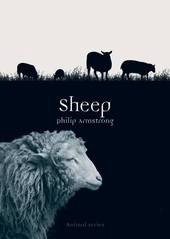
|
Sheep
Paperback / softback
Main Details
| Title |
Sheep
|
| Authors and Contributors |
By (author) Philip Armstrong
|
| Series | Animal |
|---|
| Physical Properties |
| Format:Paperback / softback | | Pages:208 | | Dimensions(mm): Height 190,Width 135 |
|
| Category/Genre | Farm and working animals |
|---|
| ISBN/Barcode |
9781780235936
|
| Classifications | Dewey:599.649 |
|---|
| Audience | |
|---|
| Illustrations |
100 illustrations, 70 in colour
|
|
Publishing Details |
| Publisher |
Reaktion Books
|
| Imprint |
Reaktion Books
|
| Publication Date |
1 May 2016 |
| Publication Country |
United Kingdom
|
Description
The Egyptians worshipped them, the Romans dressed them in fitted coats, the Christians made the shepherd synonymous with their divine saviour. In Sheep, Philip Armstrong traces the natural and cultural history of both the wild and domestic species of Ovis: from the Old World mouflon to the corkscrew-horned flocks of the Egyptians, to the 'Trojan sheep' of Homer's Odyssey, to the vast migratory mobs of Spanish merinos - all the way to Dolly the cloned ewe and the sheep-human hybrids of Haruki Murakami. Above all else, Sheep demonstrates that sometimes the most mundane animals turn out to be the most surprising. "In Sheep, a superb volume that more than meets the high bar set in the Reaktion Books Animal Series, the animal-studies scholar Philip Armstrong notes that "no other domestic animal fades from view, even as we use it, quite as completely as the sheep" - before setting this situation to rights." - The Times Literary Supplement
Author Biography
Philip Armstrong is an Associate Professor of English at Canterbury University, New Zealand, and the Co-Director of the New Zealand Centre for Human-Animal Studies. His books include What Animals Mean (2008).
Reviews"In Sheep, a superb volume that more than meets the high bar set in the Reaktion Books Animal Series, scholar Philip Armstrong notes that 'no other domestic animal fades from view, even as we use it, quite as completely as the sheep'--before setting this situation to rights. In six chapters with titles such as 'Sheepishness' and 'A Sheep-shaped World, ' each graced with gorgeous illustrations in natural and cultural history ranging from 'The exuberantly polycerate Jacob Sheep' that can have up to six horns to 'Don Quixote's ovine delusion, ' Armstrong produces a sheep manifesto that's both delightful and disturbing." -- "Times Literary Supplement"
|